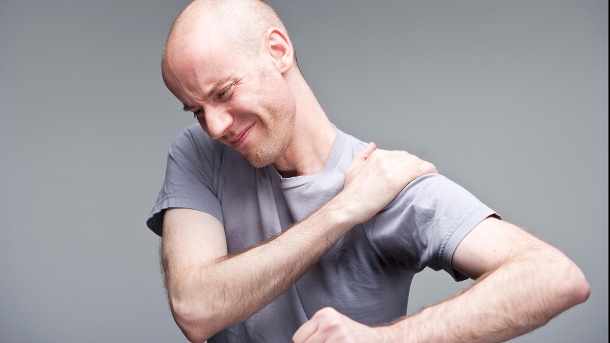
Inflamed joints are a torment: If any movement hurts, sufferers seek desperate help. But how can the symptoms be alleviated and other treatment measures effectively supplemented?
In addition to the use of painkillers and various doctor-prescribed therapies, there are a number of other recommendations that can help with inflammation in the joints and relieve joint pain. These include, for example, cool envelopes and cooling ointments.
What is an arthritis? The term for arthritis is arthritis – but there are many different manifestations of the disease with different causes. Frequently, bacterial infections are responsible for arthritis. They can cause inflammation directly at the joint, typically caused by staphylococci or streptococci. The pathogens can also migrate from another inflammatory focus in the body via the bloodstream in the joint. For example, a middle ear infection or cold sores can lead to arthritis.
Cool envelopes relieve joint inflammation
Cold can pain relieve. It has an anesthetic effect and dampens inflammatory processes by slowing down the metabolism in the joint. But beware: The applications should always be cool, but never ice-cold, to prevent damage to the skin and blood vessels.
By the way: Even if every movement hurts, rest is the wrong way to cure an inflammation in the joints. Of course you should not overdo it with sports in an acute illness. Denoch has proven that moderate exercise supports the healing process. Likewise, regular exercise prevents joint pain.
Joint pain: heat is poison
Under no circumstances should heat come to the acutely inflamed and swollen joint, warns the German Arthrose-Hilfe. Heat boosts the inflammatory process of joint disease and can aggravate joint pain. So the disease progresses and the pain increases.
The reason: An inflammatory reaction of the body shows in addition to symptoms such as redness, swelling and pain by overheating of the affected area. If this heat development is intensified, the complaints also increase.
Never apply heat directly
According to the osteoarthritis aid, warmth is only recommended if it benefits the surrounding tendons and muscles. Then it can relax the strained and strained areas due to the constant pain and promote their blood circulation. It is important that the heat does not radiate directly into the joint, but only heats the areas above and below.
Osteoarthritis: Three risk factors
A conscious diet can also supplement the arthritis therapy and help to reduce inflammation. The German Osteoarthritis Foundation recommends refraining from cigarettes, alcohol and red meat as it contains substances that negatively influence the metabolism of the joints and promote inflammation.
“Osteoarthritis diet” : more freshness, less sugar
In contrast, the omega-3 fatty acids contained in sea fish can be anti-inflammatory. Fruits and vegetables supply the joints with important vitamins, minerals and trace elements. Healthy oils such as linseed, soybean and walnut oil are also said to have an anti-inflammatory effect.
Many arthritis sufferers also report an improvement in the clinical picture when they reduce white flour products and limit their sugar intake.
Dietary supplement for joint pain
Some orthopedic surgeons and patients have also had good experiences with the dietary supplement MSM. Methylsulfonylmethane is an organic sulfur compound. The body contains five times more sulfur than magnesium and even forty times more than iron. About half of the sulfur is found in muscles, skin and bones.
The effect of MSM is based on four pillars:
- It helps the muscles to relax,
- inhibits inflammation,
- Catches free radicals in the joint
- and promotes blood circulation.
- Swelling, pain, redness and heat in the joints can be alleviated.
With joint complaints always to the doctor
Despite the tips mentioned above, it is important to always consult a doctor with sore and aching joints and use the appropriate therapy. Although the mentioned recommendations against inflammation may have a positive influence on the course of the disease, they are not sufficient as the sole treatment.
Also applies to painkillers: Always discuss the appropriate drug, dosage and duration of use with a doctor.

